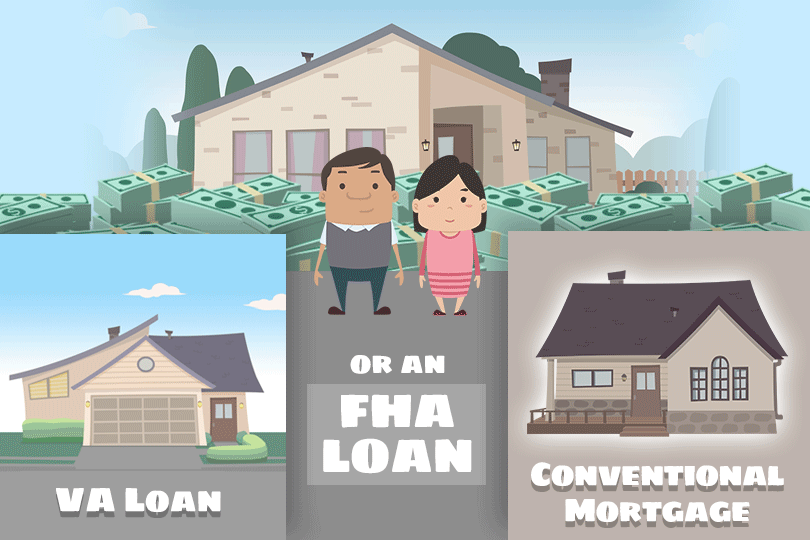The Difference Between FHA Loans and Other Mortgages

And other government loan programs may have better perks than an FHA mortgage in the form of upfront costs; the VA loan program has its famous zero down payment option, for example.
FHA loans are an option for borrowers to consider when they need to save more money at the start of the homeownership journey. They aren’t always the right choice, but an FHA loan is the gateway to owning that first home for many.
FHA Loans Compared to Conventional Mortgage Options
FHA and conventional mortgages require mortgage insurance. Conventional loans have private mortgage insurance, which may be canceled when home equity reaches 20%.
FHA mortgage insurance premiums, by comparison, are either for the entire term of the loan or may be canceled after 11 years. Your options depend on the loan term, loan amount, and other factors.
FHA loans and conventional mortgages require down payments, but FHA loans are typically set at a minimum 3.5% down. Depending on your credit and other factors, such as the desire to avoid paying mortgage insurance, your down payment on a conventional loan may be higher.
FHA Loans Compared to VA Mortgages
VA loans have no VA-required mortgage insurance AND no VA-required down payment. But these loans aren’t open to the general public, only those who have served and qualified spouses.
FHA mortgages are open to anyone who financially qualifies for the loan. VA mortgages, like FHA loans, have a funding fee, and both loan programs allow the borrower to walk away from the transaction if the home is appraised lower than the asking price.
Both VA and FHA mortgages require occupancy as a condition of loan approval and both programs restrict borrowers from using these loans to buy an investment property.
FHA Loans vs. USDA Loans
Some mistakenly assume FHA loans are similar to USDA loans in one crucial area--need. USDA mortgages are specifically for low-to-moderate-income applicants and have restrictions on income and home location.
FHA mortgages are not need-based loans, have no income caps, and do not require you to purchase in a rural area like USDA loans.
Both government programs guarantee their loans, making it easier for lenders to offer the mortgages to those with less competitive FICO scores, but you must still credit qualify for both types of loans.
------------------------------
RELATED VIDEOS:
Keep Your Eyes on Your Loan Balance
Learn About FHA Loan Prepayments
Taking Out a Home Loan Makes You a Borrower

Do you know what's on your credit report?
Learn what your score means.







